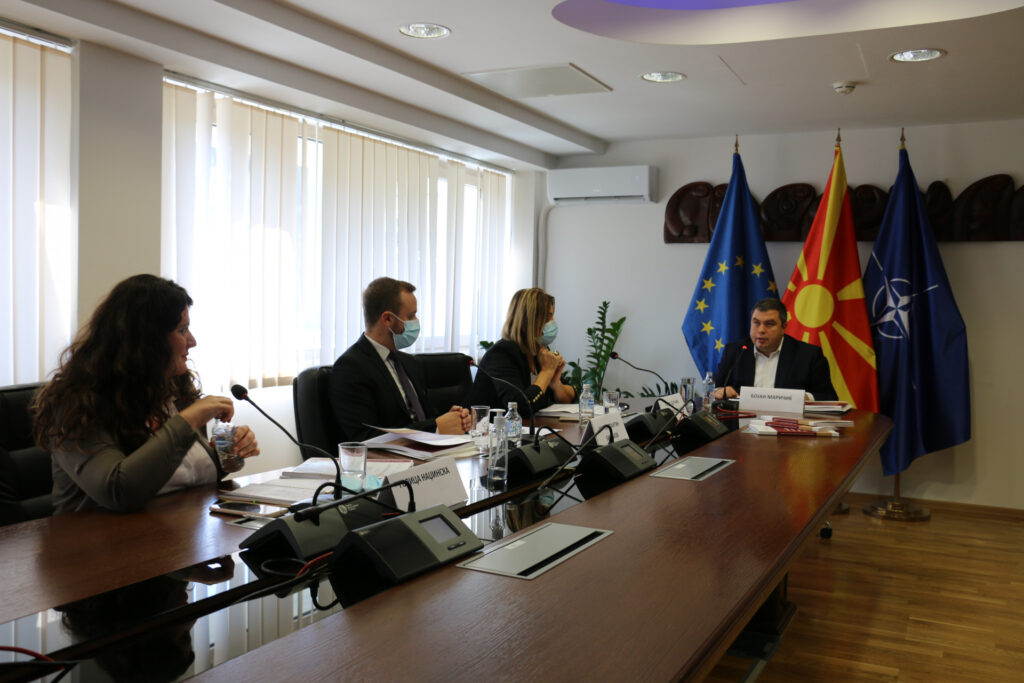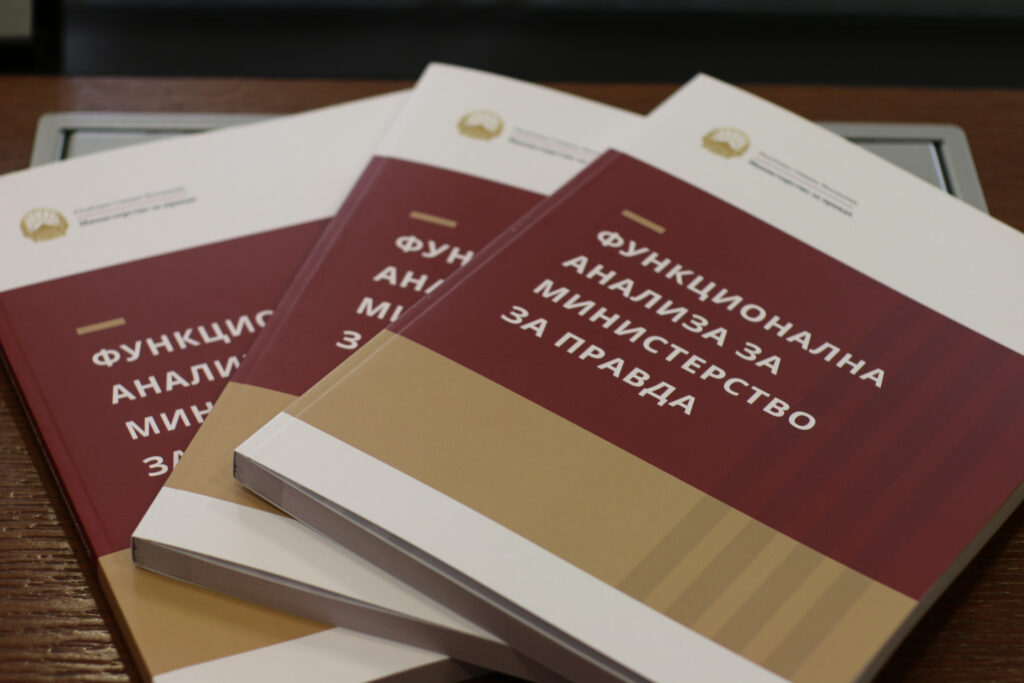
The Center for Legal Research and Analysis in cooperation with the Ministry of Justice prepared the Functional Analysis of the Ministry of Justice of the Republic of North Macedonia. This Functional Analysis is the first document of this type for the Ministry of Justice, upon which together with the Functional Analysis of all 27 basic courts in the country (whose presentation is forthcoming) will be a completion of the process of in-depth analysis of all judicial bodies and institutions in the country.
Namely, the Functional Analysis of the Ministry of Justice provides an in-depth review of the daily challenges in the work of MoJ and at the same time detects all shortcomings regarding the efficiency and functionality in the work, which will serve as a basis for undertaking all further reform processes, structural and organizational, through the preparation of the Improvement plan of the Ministry of the Justice, which will follow in the next period.
The analysis examines the functionating of the Ministry through the prism of several key indicators: transparency and public relations in operations, efficiency in the decision-making process, internal organization and human resources, working conditions and information and communication technologies, finances of the MoJ, gender perspectives in the organizational set-up of the MoJ and strategic planning.
The presentation of the Functional analysis of the Ministry of Justice was realized on August 27 in the premises of the Ministry, where the speakers were: the Minister of justice Bojan Maricikj, the ambassador of the United Kingdom in North Macedonia, Ms. Rachel Galloway, then the professor Ana Pavlovska Daneva and M.Sc. Konstantin Bitrakov as the main legal experts and authors of the Analysis, and Gorica Nadjinska, project manager of CLRA.
Gorica Nadjinska, at the beginning of the event, expressed great pleasure and honor for conducting the analysis, highlighting that significant process of an in-depth and comprehensive analysis of the judicial institutions is being completed, which will contribute to increasing the credibility of the institutions and improving the judicial sector, based on international European standards of rule of law.
The Minister of justice Bojan Maricik stated that the analysis is the basis of all future reform processes in the judicial sector, and at the same time is a result of successful and long cooperation with the British embassy in Skopje and CLRA. He also noted that the conclusions in the analysis and then included in the Improvement plan will be considered in the Rulebook of the internal organization of the MoJ.
The Ambassador of the United Kingdom in Skopje Ms. Rachel Galloway expressed great pleasure for the preparation of such a document, stating that this analysis, as well as the Improvement plan of the MoJ, will contribute to a successful reform process within the Ministry of Justice and will be the beginning for improving the whole judicial sector in the country.
Professor Ana Pavlovska Daneva spoke in more detail about the process of preparation of the analysis, i.e. conducting a written questionnaire for officials employed within the Ministry, as well as conducting direct interviews with representatives of state administrative bodies, which largely speaks for the direct involvement of the most relevant stakeholders in the work of the Ministry of Justice, as a category that is directly involved in its functioning.
M.Sc. Konstantin Bitrakov, covered in more detail the indicators through the prism of which various aspects of the functioning of the Ministry are covered, stating that especially the indicator transparency and public relations as the first, indicates the great diligence and efficiency of the ministry in providing information or acting at the request of the citizens, i.e. according to the certain data, the Ministry is one of the most transparent public bodies in the country.
Professor Ana Pavlovska Daneva and M.Sc Konstantin Bitrakov noted mutual agreement that the reform process within the Ministry of Justice should be processed in accordance with the traditional characteristics of the development of the constitutional system in the country, following the international European standards of rule of law. Changes from the structural and organizational aspect in the Ministry are inevitable, from the aspect of gradual relief in the area of competencies and more appropriate coordination between Ministry for information society and administration and MoJ, which in turn will contribute to more efficient and diligent functioning.
At the very end of the event, all present expressed special gratitude for the involvement in the preparation process and aspiration to further monitor the reform process of the Ministry in order to promote the basic principles in the realization of human rights and freedoms.
The analysis was prepared within the project ,,Embedding analytical and monitoring tools to support justice sector reforms in the Republic of North Macedonia’’, supported by the British Embassy Skopje, and implemented by the Center for Legal Research and Analysis.


